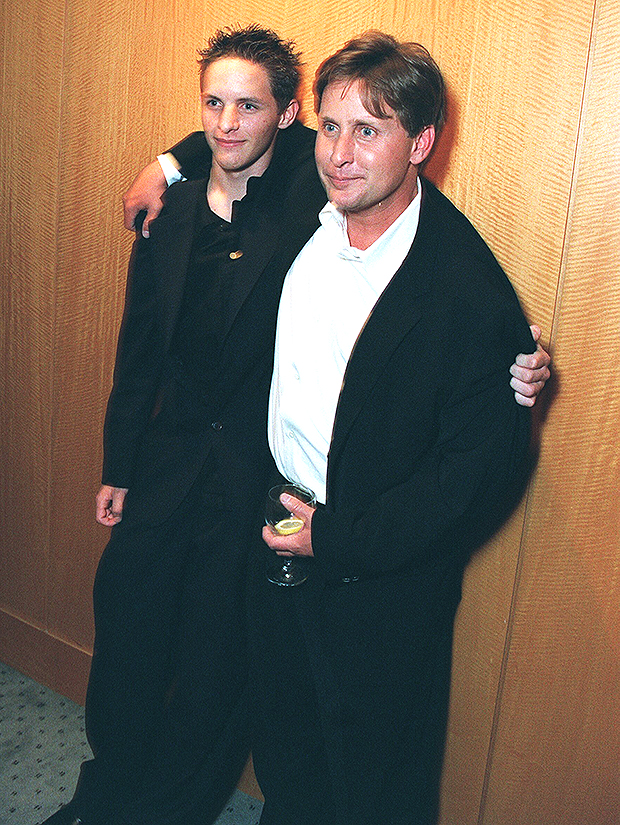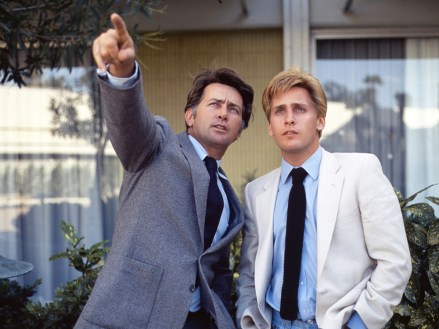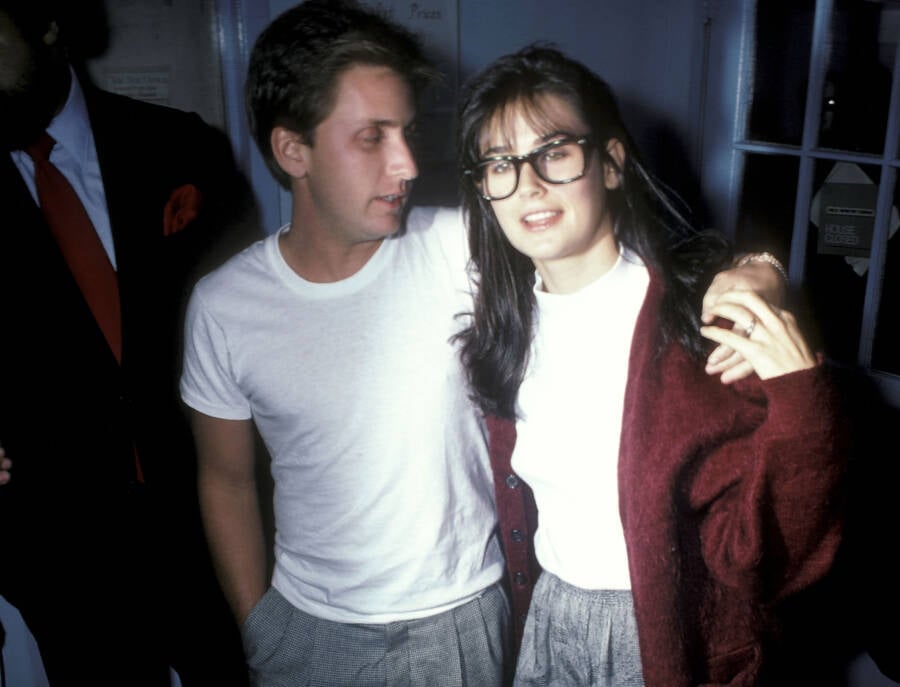In an industry often characterized by superficiality and the constant pursuit of fame, Emilio Estevez stands out as a figure who has successfully navigated the tumultuous waters of Hollywood while maintaining a sense of authenticity. Estevez, born on May 12, 1962, in New York City, is not only an accomplished actor but also a director and writer. He is best known for his roles in iconic films like “The Breakfast Club” and “The Mighty Ducks.” However, his journey in the entertainment industry transcends mere fame; it is a story of self-discovery, integrity, and the importance of staying true to one’s values amidst the pressures of Hollywood.
The Estevez Legacy: A Background

Emilio Estevez is part of the renowned Estevez-Sheen family, which includes his father, Martin Sheen, and brother, Charlie Sheen. Growing up in a household with deep roots in the entertainment industry, Emilio was exposed to both the glitz of Hollywood and the struggles that come with it. His father, Martin Sheen, often spoke about the challenges of fame and the importance of authenticity, which had a profound impact on Emilio’s outlook.
Estevez chose to use his real surname, rejecting the stage name “Sheen” that his father adopted, as a way to honor his family heritage and affirm his individuality. This decision marked the beginning of his quest for authenticity in an industry that often prioritizes image over substance.
The Quest for Authenticity
For Emilio Estevez, authenticity is not just a buzzword but a guiding principle. His career choices reflect this commitment. Unlike many of his contemporaries, Estevez has often opted for roles that resonate with his values rather than those that merely promise commercial success. Here are a few examples of how Estevez has balanced fame and authenticity:
- Independent Films: Estevez has a penchant for independent cinema, which allows him greater creative control. His film “The Way” (2010), which he wrote and directed, showcases this approach beautifully. It tells the story of a father who embarks on a pilgrimage along the Camino de Santiago to honor his deceased son. The film is a poignant reflection on grief, personal growth, and the importance of genuine connections.
- Social Issues: Estevez has been vocal about social and political issues, using his platform to advocate for change. His film “Bobby” (2006), which chronicles the events surrounding the assassination of Robert F. Kennedy, delves into themes of hope and unity during a tumultuous time in American history. Estevez’s willingness to tackle such subjects speaks to his desire to create meaningful art.
- Authentic Relationships: Estevez has maintained close relationships with his co-stars and collaborators over the years. His work with the cast of “The Breakfast Club” is a testament to this. The film remains a touchstone for a generation, and Estevez’s genuine camaraderie with his fellow actors contributed to its lasting impact.
The Impact of Fame

While fame can open doors and provide opportunities, it can also create pressures that challenge one’s authenticity. Estevez has experienced both sides of this coin. His rise to fame in the 1980s, particularly as part of the “Brat Pack,” brought him immense popularity but also scrutiny. The pressure to conform to public expectations often leads many actors to compromise their beliefs and values.
Estevez, however, has managed to maintain a sense of self amidst the chaos. His decision to step back from the limelight during the late 1990s and early 2000s exemplifies his understanding of the importance of mental health and personal fulfillment. Instead of chasing after blockbuster success, he focused on projects that resonated with him personally, thereby reinforcing his authenticity.
Case Studies: Films that Showcase Estevez’s Authenticity
To further illustrate Emilio Estevez’s ability to balance fame and authenticity, let’s explore a few films that epitomize his approach:
The Breakfast Club (1985)
Estevez starred as Andrew Clark, a high school athlete, in John Hughes’ classic film about five teenagers from different cliques who bond during Saturday detention. The film’s exploration of identity, peer pressure, and the search for acceptance resonated with audiences, cementing its status as a cultural phenomenon. Estevez’s performance was authentic, showcasing vulnerability and depth, which contributed to the film’s enduring legacy.
The Way (2010)

As mentioned previously, “The Way” marks a pivotal point in Estevez’s career. The film is not just a personal project but also a reflection of his beliefs about life and death. Estevez’s portrayal of a grieving father provides a raw and honest look at loss, making it a deeply authentic piece of cinema. The film also emphasizes the importance of community and the transformative power of journeying through life, further showcasing Estevez’s commitment to meaningful storytelling.
Bobby (2006)
This film serves as a poignant reminder of the power of hope in the face of adversity. By choosing to tell the story of Robert F. Kennedy, Estevez pays homage to a historical figure whose ideals align with his values of social justice and change. The ensemble cast, including the likes of Demi Moore and Anthony Hopkins, demonstrates Estevez’s ability to attract talented collaborators who share his vision for authentic storytelling.
Statistics and Trends in Hollywood

The landscape of Hollywood is constantly evolving, and with the rise of streaming platforms and independent films, there is a growing demand for authentic narratives. According to a report from the Motion Picture Association, the number of independent films produced annually has increased by over 30% in the last decade. This shift provides actors like Estevez the opportunity to create work that aligns with their values while still reaching a broad audience.
Moreover, a survey conducted by the Hollywood Reporter revealed that 73% of audiences prefer films that focus on authentic stories and characters rather than formulaic blockbusters. This trend presents a unique opportunity for actors and filmmakers who prioritize authenticity, as consumers increasingly seek connection and relatability in the content they consume.
Conclusion: The Balancing Act
Emilio Estevez’s journey in Hollywood serves as a powerful reminder that it is possible to achieve success while remaining true to oneself. His insistence on authenticity in his roles, choice of projects, and personal relationships has allowed him to navigate the challenges of fame without losing sight of his core values. In an industry often dominated by trends and superficiality, Estevez stands as a beacon of integrity.
As audiences continue to crave authentic narratives and genuine connections, Estevez’s career exemplifies the importance of balancing fame with authenticity. His story encourages aspiring actors and filmmakers to prioritize their own values and beliefs, reminding us all that true success comes from staying grounded in one’s identity, no matter the external pressures of the entertainment world.




